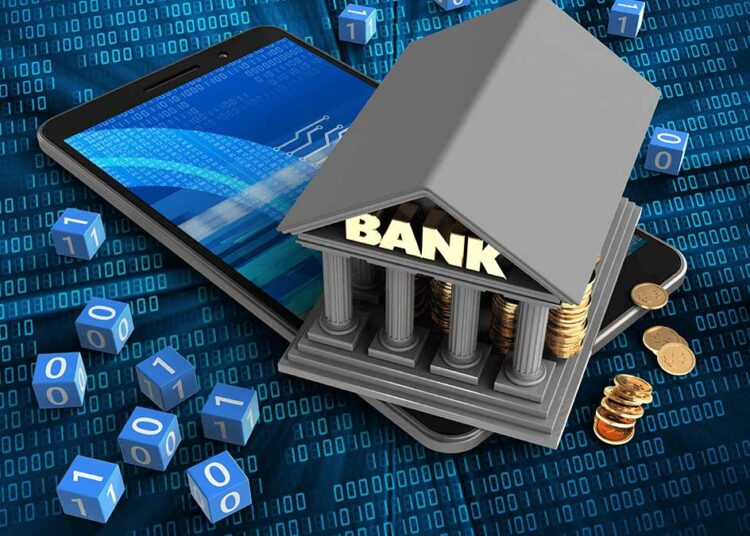Nigeria’s banking industry is undergoing a quiet transformation, as digital-only banks increasingly challenge the dominance of traditional institutions with physical branches, LEADERSHIP learnt.
With the federal government pushing forward its cashless policy and fintech adoption reaching new highs, players like Kuda, ALAT by Wema, VBank, Sparkle, and Carbon among others are redefining the banking experience for millions of Nigerians.
These digital banks operate without physical branches, relying instead on app-based platforms to offer savings, transfers, loans, and budget tools. Their lean structure enables them to cut costs and offer competitive perks such as zero maintenance fees and free transfers, services that have resonated strongly with Nigeria’s urban, mobile-first population.
Nigeria’s digital economy is experiencing strong growth, particularly in digital payments and e-commerce. The digital banking sector is also seeing significant expansion. E-commerce is projected to reach $33 billion by 2026 while the digital banking market is expected to reach $852.44 million by 2029, with a 6.42 percent CAGR from 2025 to 2029, according to Statista.
Digital banking is also gaining demographic advantage. Kuda Bank, for example, has become a popular choice among young Nigerians, offering up to 25 free transfers monthly, no account maintenance fees, and easy access to savings and budgeting features. ALAT by Wema, one of the pioneers in the space, continues to expand its digital reach while backed by the infrastructure of a legacy bank. These platforms are appealing in a country where smartphone adoption is rising sharply and over 120 million people have internet access.
In contrast, traditional deposit money banks still rely heavily on physical branches. Their models, while proven and regulated, come with high operational costs for real estate, staffing, and in-person services. Although these institutions offer a broader suite of services, including trade finance and international banking, critics point to slow response times, long queues, and outdated interfaces that lag behind their digital competitors.
The cashless policy championed by the Central Bank of Nigeria (CBN) has been pivotal in accelerating this digital shift. Since the policy’s launch in 2012, electronic payment volumes have grown exponentially, peaking at over 11 billion transactions in 2023. The 2023 naira redesign and accompanying cash withdrawal limits further pushed Nigerians to adopt mobile banking tools, with many depending on digital banks during periods of cash scarcity.
Reacting on this development, the president of Independent Shareholders Association of Nigeria(ISAN), Moses Igbrude said, the transition has not been seamless, adding that, “many rural dwellers and older citizens remain reliant on traditional banks due to limited digital literacy or poor internet infrastructure. And while digital banks offer convenience, they remain vulnerable to cybersecurity threats, system outages, and the broader infrastructure challenges Nigeria faces, including unreliable electricity and inconsistent mobile data coverage.”
Trust and regulation are also central to the debate. Traditional banks, with their long-standing reputations and institutional structures, are often viewed as more secure. Digital banks, while innovative, are still building credibility and must comply with growing regulatory demands.
The CBN has licensed several digital operators as microfinance banks, offering them a legal framework to operate, but further scrutiny on customer data protection, digital identity, and financial stability is expected.
Statista projects that digital banking penetration in Nigeria, which stood at 45 per cent in 2023, will rise to 64 per cent by 2027. With smartphone use expected to reach 80 per cent by 2026, the outlook for the sector remains promising.
A cyber security expert in Lagos, Taiwo Ogunjobi, noted that the future of banking in Nigeria is not about choosing between digital or physical platforms, but rather integrating the strengths of both. He said traditional banks are now investing heavily in digital upgrades and forming fintech partnerships to remain competitive.
Meanwhile, digital-only banks are realising that scaling effectively will require more than just sleek interfaces; it demands trust, compliance, and infrastructure resilience.
“As financial literacy deepens and the regulatory landscape evolves, the most successful banks will likely be those that merge the credibility of legacy systems with the innovation of digital platforms. Nigeria’s banking future, it seems, will be built not on disruption alone, but on convergence,” stated Ogunjobi.
We’ve got the edge. Get real-time reports, breaking scoops, and exclusive angles delivered straight to your phone. Don’t settle for stale news. Join LEADERSHIP NEWS on WhatsApp for 24/7 updates →
Join Our WhatsApp Channel










